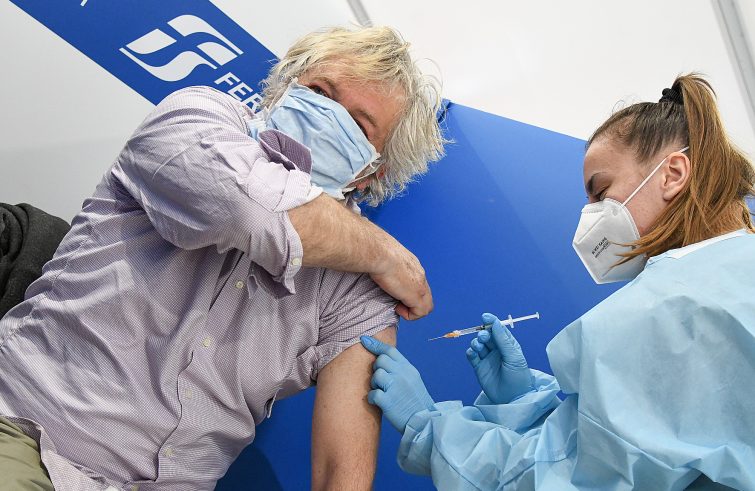
Italy will start offering a third dose of Covid vaccines as of September 20 for immunocompromised patients, based on the Circular Letter of the Ministry of Health while, as every year, autumn will see the start of the flu vaccination campaign. “Vaccinating against influenza is a must, but wearing face masks is still essential”, Roberto Cauda, professor of Infectious Diseases at the Cattolica University and head of the Infectious Diseases Unit at the Agostino Gemelli University Hospital in Rome, told SIR. In the meantime, the American pharmaceutical company Moderna that developed the Spikevax mRNA vaccine, better known simply as “Moderna”, announced that it is working on a combined vaccine against Covid and seasonal flu.
 Professor, a Covid booster vaccine rollout will begin shortly. Last year’s flu season was marked by serious delays in the supply of vaccines to general practitioners…
Professor, a Covid booster vaccine rollout will begin shortly. Last year’s flu season was marked by serious delays in the supply of vaccines to general practitioners…
Building on last year’s experience, we hope to have more flu vaccines available this year. Before the COVID-19 pandemic Italy recorded an average of about 8 million cases of influenza and 8,000 deaths per year, directly or indirectly related to influenza. Last year, and not thanks to vaccinations, which for a number of reasons was not as extensive as in previous years, the influenza epidemic season actually did not occur.
This is due to anti-Covid precaution measures, notably the use of face masks, which is the most effective protective measure, since the influenza virus is transmitted in a similar way to Sars-CoV-2. However, as the Delta variant has raised the R0 – i.e. how many people an infected person can infect – to 7-8, a figure comparable to that of chickenpox,
we must contain the risk of the two viruses circulating at the same time, and the risk of confusing influenza with Covid-19 and vice versa.
So does influenza vaccination ‘help’ to make differentiated diagnoses?
In hindsight, we now know that the so-called “patient 1” in the town of Codogno, identified in February 2020, was probably preceded by many others that, for no one’s fault, were not identified as Covid-related because the symptoms were mistaken for influenza.
Flu vaccination is important not only to prevent a potential upsurge of the flu epidemic – which could cause an overcrowding of emergency rooms as occurred in previous years, forcing millions of people to stay home in bed – but also to facilitate differential diagnosis in age groups at higher risk of serious illness, for which it is recommended.
What are the expected timing of the vaccine rollout and its procedures? Is there a risk of a “gridlock”?
The campaign normally runs from mid-October to mid-December. The Ministry of Health will decide on the exact timeframe and whether, and if so how long, there should be an interval between the flu and the Covid shots. However, in strictly immunological terms, this would not be the first time that several vaccines have been administered at the same time. From a broader perspective, should the need arise to administer the double vaccine protection periodically, perhaps on an annual basis, the pharmaceutical companies – Moderna being the first to announce this in recent days – are currently developing
combined anti-Covid and anti-influenza vaccines to provide double protection in a single dose.
Professor, you stressed the importance of continuing to wear face masks…
With the reopening of schools it is likely that there will be a slight increase in infections. The ongoing vaccination campaign has certainly brought greater protection, but the pandemic is by no means over. Continuing the precautionary measures, especially wearing face masks at least indoors or where there is a risk of crowding, will help us not only to combat the spread of COVID-19 but also to avoid a surge in flu cases. In short, it will allow us to approach the coming months with greater ‘serenity’ and ‘confidence’ compared to last year.
Which type of mask do you recommend?
If worn by everyone, standard surgical masks are sufficient. However, in the presence of a contagious variant such as Delta, FFP2 masks, which have a greater filtering capacity against the virus, offer greater protection.









